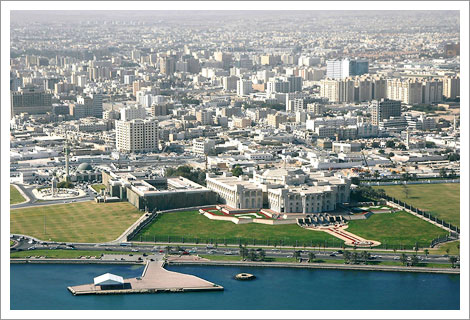The constitutional development in Qatar graduated from one phase to another, keeping pace with the development of the country and it's economic growth. The first provisional constitution was issued in 1970 before independence and it was amended in 1972 after independence, in order to cope with the requirements and responsibilities of the new phase.
Since that time the objectives and features of the state policy and its Gulf, Arab and Islamic affiliations were determined. The State's authorities and apparatus acquired their experience from actually practicing these authorities in the internal and external domains.
Amendments were made on some provisions of the provisional basic statute in regard to the executive authority and hereditary rule so as to conclude the constitutional arrangements in the country. The judiciary act and other basic laws, which were enacted to regulate civil and commercial interactions, were other steps on the way to build up the government apparatus and lay down the foundation for the rule of institutions and the law. To reach that goal, an Emiri Decree was issued in July 1999 to form a high level committee to draft a new, permanent constitution for the country, one of the main provisions of which would be to cope with the achievements of the State of Qatar and to meet the aspirations and hopes of the 21st century.
Since that time the objectives and features of the state policy and its Gulf, Arab and Islamic affiliations were determined. The State's authorities and apparatus acquired their experience from actually practicing these authorities in the internal and external domains.
Amendments were made on some provisions of the provisional basic statute in regard to the executive authority and hereditary rule so as to conclude the constitutional arrangements in the country. The judiciary act and other basic laws, which were enacted to regulate civil and commercial interactions, were other steps on the way to build up the government apparatus and lay down the foundation for the rule of institutions and the law. To reach that goal, an Emiri Decree was issued in July 1999 to form a high level committee to draft a new, permanent constitution for the country, one of the main provisions of which would be to cope with the achievements of the State of Qatar and to meet the aspirations and hopes of the 21st century.
 |
|||||||||
|
|||||||||